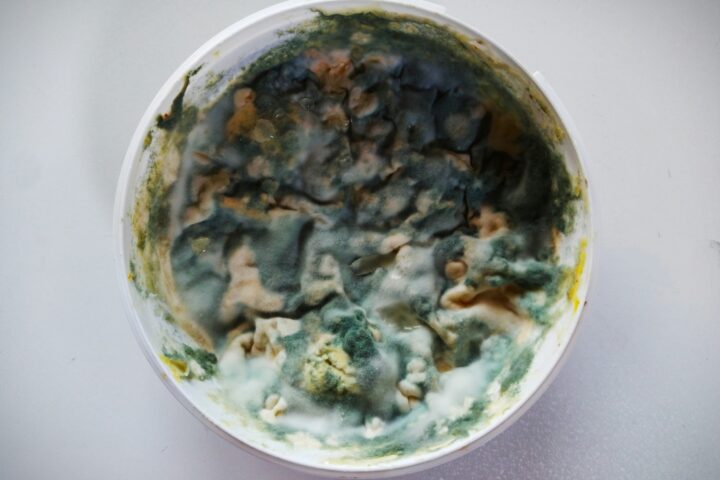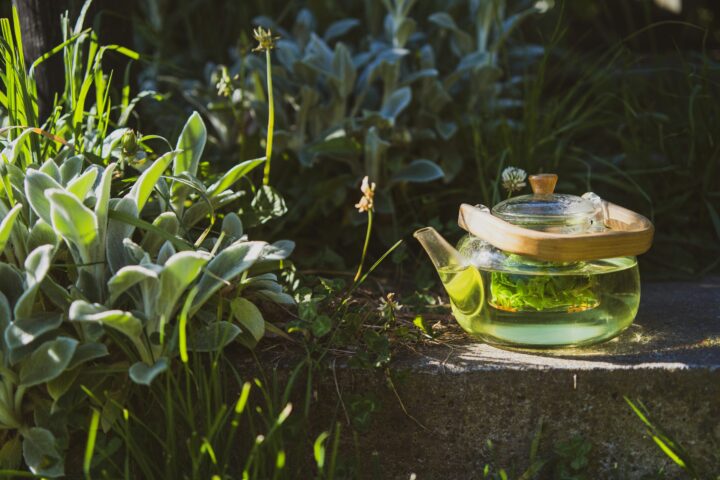
Do without Swiss rapeseed oil?
Rapeseed is the most important Swiss oil crop and it continues to gain in importance. Unpopular palm oil imports are increasingly being replaced by Swiss rapeseed oil. However, without synthetic pesticides, domestic cultivation would not be possible. Rapeseed is important for consumers and manufacturers of many Swiss products as well as for local bees. Rapeseed is also an important food source for them.
Thursday, June 10, 2021
A quarter of Switzerland's demand for vegetable oil is covered by rapeseed. Approximately 6500 farms grow rapeseed on an area of 32,000 football fields (about 23,000 hectares). However, rapeseed cultivation in Switzerland is a challenging business. Rapeseed is a sensitive crop. That is why only 1.5 percent of the total rapeseed acreage in Switzerland is used for growing organic rapeseed. A completely "pesticide-free" cultivation would be impossible in the required quantity and quality.
Bees would also be affected by the disappearance of rapeseed in Switzerland. For them, the oil plant is the most important source of pollen and nectar in spring. In addition, the large rapeseed cluster contributes to the development and swarming of bee colonies.
High pest pressure
In the fall, it is mainly the rapeseed flea that threatens oil plants after sowing. However, slugs also make a mess of canola. In spring, the canola stem weevil can cause enormous damage to the plant by laying its eggs. This results in yield losses of up to 30 percent. The canola glossy beetle causes damage to the flower buds while they are still in flower. These multiple threats make the use of crop protection products essential.
Canola oil increasingly replacing palm oil
Without pesticides, rapeseed cultivation in Switzerland would be unimaginable. Food manufacturers committed to switching to Swiss rapeseed oil for their products would have to change their plans again. These include Zweifel, for example, which makes its potato chips exclusively with Swiss canola oil. Another example is the Ovomaltine manufacturer Wander. Their "Ovomaltine Crunchy Cream" spread no longer contains palm oil, but only Swiss rapeseed oil. Without suitable pesticides, they would probably have to switch back to sunflower oil and palm oil, respectively.
Multiple benefits of rapeseed
In addition to its use as an edible oil, rapeseed is also very useful in agriculture. The press residues of the rapeseed grains contain a lot of protein and a favorable composition of amino acids. They are therefore already used to some extent as domestic concentrated feed in livestock farming. However, because the plants contain large amounts of phytic acid with its antinutritional properties, their suitability as animal feed has been limited to date. Genome editing could provide a remedy here in the future. Using the CRISPR/Cas9 gene scissors, researchers have succeeded in significantly reducing the phytic acid content in rapeseed. With the technique, more concentrated feed could be produced in Switzerland and less feed would need to be imported. In organic farming, rapeseed oil is used as a pesticide because of its insecticidal effect. It comes from conventional rapeseed, for which the use of synthetic pesticides is unavoidable in its cultivation.
Demand exceeds supply
Consumers are demanding Swiss canola oil. Demand has risen steadily in recent years. Demand clearly exceeds production. Switzerland's degree of self-sufficiency in rapeseed oil is about two-thirds. The world market is also depleted, with rapeseed currently almost unavailable despite high prices. However, Swiss farmers are not in a position to grow more rapeseed. Seed dressing with neonicotinoids has been banned for rapeseed since 2014. Since then, production volumes have stagnated despite increased demand and acreage. The call to replace palm oil must realistically be followed by a call for synthetic pesticides. After all, without crop protection, rapeseed cultivation in Switzerland would disappear.
Major failures in organic rapeseed
As the "Schweizer Bauer" reports, in 2021 there are already major failures in organic rapeseed, which is only a small niche as it is. Andreas Rohner, Head of Organic Raw Products at Fenaco, says: "We have received various reports of total failure. We expect a loss of one-third to one-half of the area, mainly because of earth flea and stem weevil damage. At the same time, organic rapeseed would be in high demand." Hansueli Dierauer of FibL sees several possible reasons for the large losses: the expansion of rapeseed areas, milder winters, an increasingly early arrival of the stem weevil and the ban on neonicotinoids in conventional cultivation. "We don't have a solution at the moment," he laments, "either the ecosystem will come back into balance or organic farming will disappear. There is no biological control of the stem weevil in sight. Our last hope is the development of new cultivation systems, with which we will start trials in the fall. Until then, organic rapeseed cultivation will shift to regions that have less pest pressure and are more favored."
This shows that: Crops are under constant threat. Targeting pests is a must. The dream of domestic oil quickly turns into a nightmare if crops cannot be protected. After all, crop failure means lost income for farmers and is a waste of agricultural land.
That doesn't mean that research doesn't need to continue in all directions – on the contrary: The challenge is to be able to do it all: conserve soil and biodiversity, protect the climate, and produce enough food for ten billion people. And to enable the ten billion people to live as livable a life as possible – with freedom of choice as we know it. Only an agriculture that is sustainable in all three dimensions can do this. This requires honest debate based on scientific evidence and the will to find solutions on all sides. Keywords for solutions are: Digitalization in research and detection of infestations, breeding methods such as CRISPR/Cas, more knowledge about interactions in the soil, research by the crop protection industry with new biological and synthetic active ingredients and their increasingly precise applications. Crops made more resistant using CRISPR/Cas can contribute to a significant reduction in pesticides, but will never be able to make them superfluous. This is because there is no such thing as a plant that is resistant to every disease or every possible pest forever and ever. The solutions are interactive and complex, not one-dimensional. Agriculture will need all the tools available to meet the challenges in a resource-efficient way. We should support them in this because: we all need to eat.
Sources
Related articles

Global facts on world food and agriculture
Only thanks to technological progress and modern crop protection will we be able in the future to conserve our resources while feeding a growing population in a healthy and affordable way.

Pesticides in Green Smoothies
After countless recipes for Christmas cookies, festive roasts and cocktails, the advice on losing weight, detoxing and beautifying oneself now takes centre stage. Most of it is sheer nonsense.

Natural Toxins: An Underestimated Risk in Our Food
Safe food cannot be taken for granted. While chemical substances are often the focus of public criticism, reality shows that the greatest risks to food safety are of natural origin. Recent recalls of infant food products illustrate how insidious bacterial toxins or moulds can be.

Herbal Teas: Making You Sick Instead of Slim
Plant protection products are frequently the focus of public criticism. Far less attention is paid to the fact that natural ingredients in teas and dietary supplements are also biologically active and can pose health risks.

